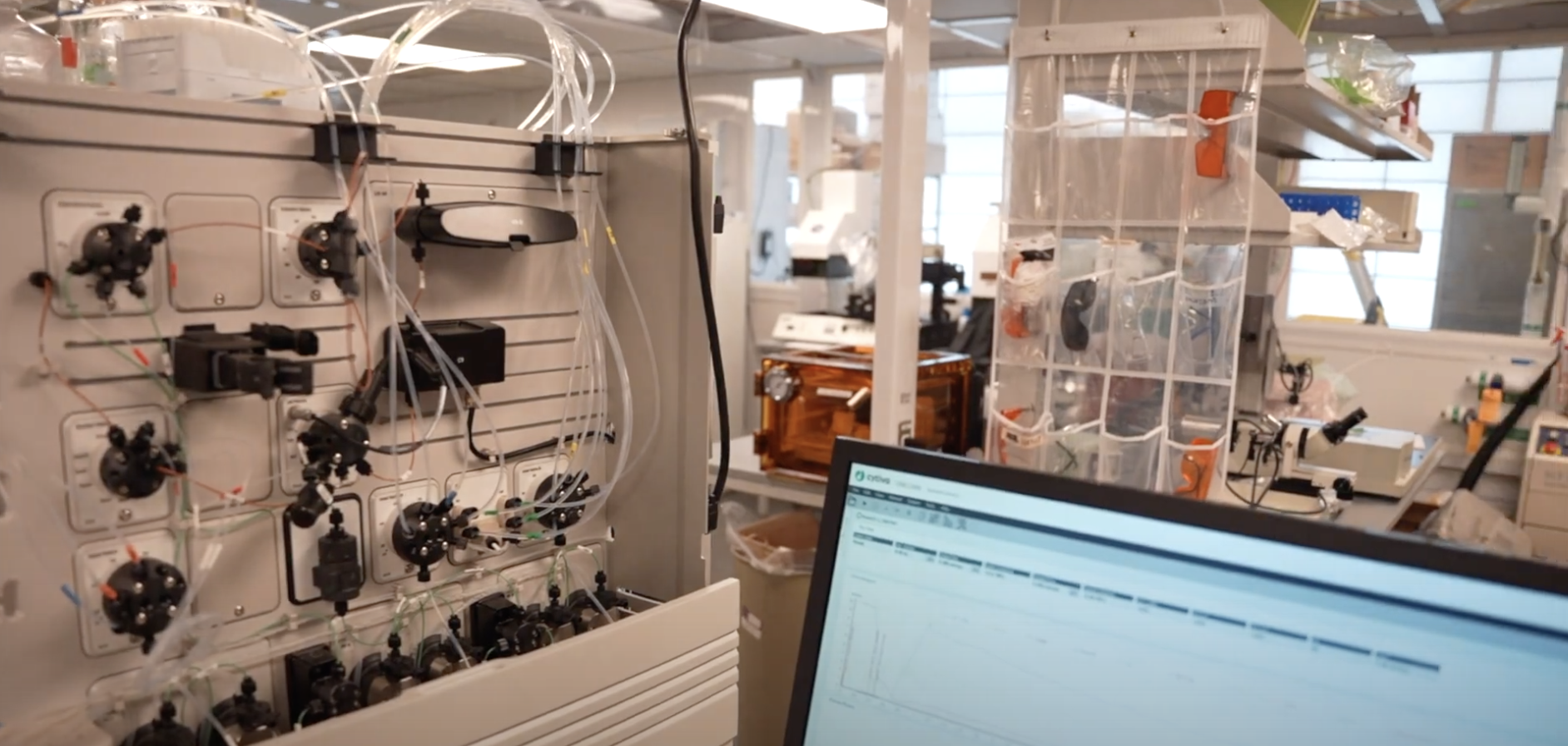A new engineering lab on Centennial Campus will refine the manufacturing and production technologies of viral vectors, or viral delivery mechanisms, used in biomedical research. The Viral Vector Initiative in Research and Learning (NC-VVIRAL) lab will develop innovative purification and sensing processes that are affordable and highly scalable for commercial applications.
Viral vectors are viruses that have been modified to deliver genetic material into cells for treatment or research. Because viruses already naturally know how to deliver their genomes into cells they want to infect, scientists can use non-pathogenic viruses as a vehicle to introduce what they need directly into a cell.
Michael Daniele, associate professor in electrical and computer engineering, and Stefano Menegatti, associate professor in chemical and biomolecular engineering, will oversee a multi-disciplinary group of engineering students and scientists who will investigate chromatography, microelectronics, data analytics and more.
The lab space is based on the concept of semiconductor foundries. It provides resources for students and researchers to come up with their viral vector design and learn how to manufacture it.
The NC-VVIRAL Lab will help solve the industry’s need to have cohesive technology, equipment and knowledge around the viral vectors. Its mission is to make viral vectors affordable and available at scale.
“The first immediate need that this fulfills in the industry is the ability to learn and develop technologies to transition new biotherapeutics, like viral vectors, into a commercially viable product,” said Daniele.
Partnerships with neighboring universities, such as the UNC Joint Department of Biomedical Engineering, and companies within the Research Triangle will help train the next generations of scientists at all academic levels.
Due to the interdisciplinary nature of the research at NC-VVIRAL, the students working at the lab will bring in a wealth of knowledge. As these students enter the workforce in North Carolina, they can contribute multiple engineering perspectives from their experience.
The exciting new aspects of this research will allow participants to be at the cutting edge of viral vector development by exploring new manufacturing capabilities. Students will gain training in bioprocessing technologies and biomolecular analytic tools “all at the same place, all at the same time,” said Daniele.
“We are open for business. We are open to consulting and collaborating with the industries,” Menegatti said. “We have accumulated here the critical mass of instruments and cross-disciplinary expertise ” to get better products into the market, faster.

